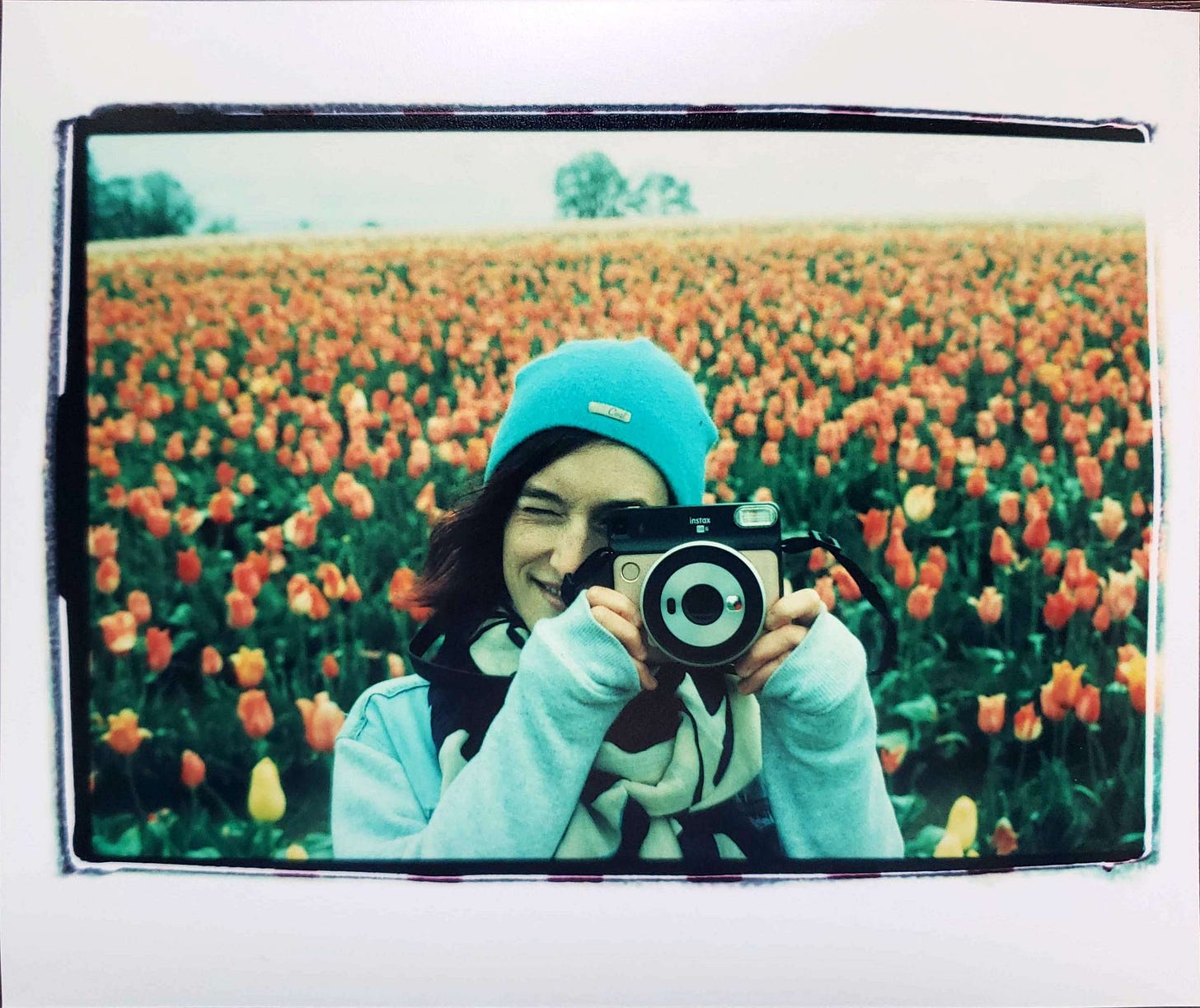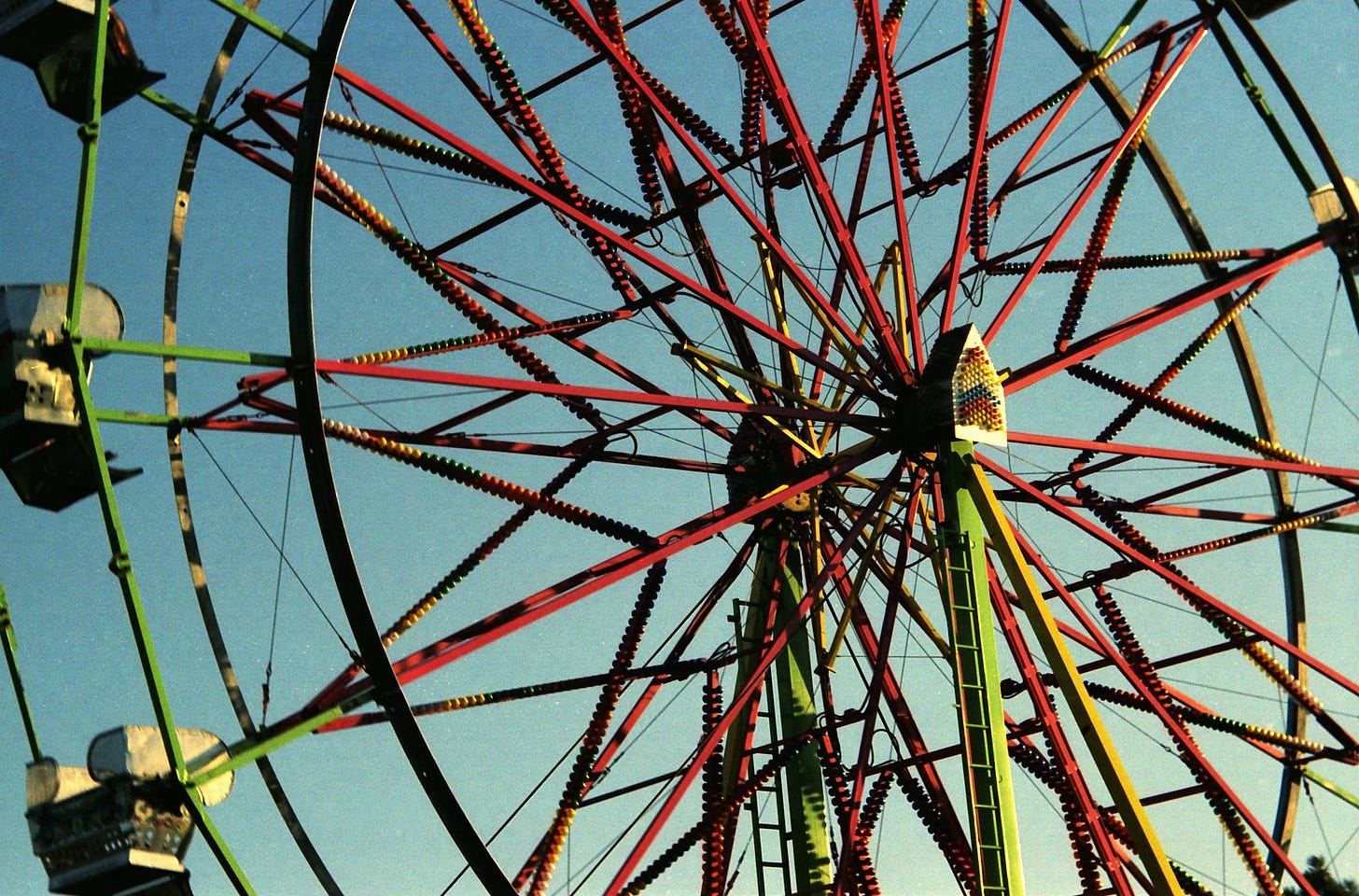For the Birds: commiserate, but don't compare
swift(-ish) letters for busy people - #4
Thanks for reading For the Birds. Life is busy! Give yourself 10 minutes of slow breathing and deep reading.
Today, I want to bring our collective attention to how utterly different commiseration is from comparison.
Duh, you might be thinking. But obvious things are sometimes the very things that don’t receive enough devoted attention.
Both words exist in the relational space between oneself and other people. That space needs constant tending. Otherwise, how we relate to others stops being intentional, chosen, and cultivated and instead becomes automatic. We start to be influenced by influences we did not necessarily consent to. We start grabbing whatever’s in reach.
In the age of Comparison Culture, looking at others and then thinking about all the things you are not is always in reach.
(Which means: if you get stuck here, it makes sense! I do too. Give yourself grace. (Sarah, give yourself grace too.) Take an extra breath, then keep reading.)
Here’s the thing:
Commiseration brings us together, while comparison drives us apart.
The one says, you are not alone, friend.
The other says, yikes—you are not like this other thing!
Commiseration strengthens the foundation of our creative channel, because art and writing always, even on a sub-atomic level, point us in the direction of community and connection. Primal connection. Writing is a less solitary act than the myths are able to account for.
Comparison weakens our creative fortitude, because it keeps us looking at others and other things more than we’re willing to look at ourselves and our own things. It keeps us spending our time—our finite energy and attention—noticing what our creativity is not, rather than what it is.
What is your creativity? No, I mean really: What is it? Engage with this question this weekend.
One of the neatest things about being a creative mentor is that it doesn’t matter how many people I talk to or how many times I find myself guiding folks through the same archetypal problems: Everyone’s creative channel is so, so different.
What is yours like? Spend time with this question like it’s an antidote to comparison-brain.
Everyone’s voice, everyone’s impulses, the shape of each person’s inspirations: No two versions of creativity are alike. They just aren’t! There are too many variables in a given heart-brain-body.
Including your heart-brain-body, the whole animal ecosystem of you.
And I’m talking about good-difference, the difference and diversity of unique personhood. Which is not the kind of difference that comparison encourages.
I’m just looking at the data here. I’m just saying what’s true.
And here’s an accompanying truth: Many of us are moving through the same set of creative anxieties & hardships:
-We struggle / get scared when our inspiration ebbs for a bit longer than it usually does.
-Or we fail to get the thing inside us into the vehicle of language and onto the page, and it makes us wonder if we ever will.
-Or we receive a rejection that guts us.
-Or we’re haunted by the vague but omnipresent feeling of being behind, of being too late to something.
-Or we fret about one of the big three: worth, purpose, impact.
Other people—maybe even other people reading this very newsletter—are moving through this stuff, too.
I say this not to undercut all those nice things I said before about your uniqueness, but to remind you that you are always less alone in your creative suffering than your darkest thoughts might lead you to think.
What if we practice noticing these hardships together?
If you pretend your suffering isn’t all that special, what happens to it?
I’m dancing around something slippery here, because talking this way can start to sound like I’m dismissing the gravity of your hardest experiences, making light of something that isn’t light at all.
But I am trying, with all my expressive powers, not to dismiss, but to unite.
What if the best parts of your creative channel are wild and unique, while the hardest, heaviest parts are shared by many?
Can both be true?
I think it might just be how people are.
Let’s experiment: In the “comments” section of today’s letter, what if we practice commiserating? Share one thing currently giving you some creative grief, so that others may nod along and say, “yes, that thing. I see you. I’m there too sometimes.”
Witnessing is an important part of creative health, and too many of us relegate that experience to things like Publishing and other big, clear instances of external validation. But witnessing happens in so many ways, and I think the best versions of it are the smaller, intimate moments where true reciprocity can occur.
“I’m seeing you, and I'm also seeing you see me, and there is NOTHING more healing or joyful than reciprocity.” I wrote this to a new friend the other day. We reveled in a kind of mutual witnessing that isn’t always possible in a larger arena. In a larger arena, many of us are more likely to compare than to genuinely connect.
Yes, I’m an advocate of the smallness. Because when you let yourself live there, you see all the big stuff it contains. And when you don’t, you can’t.
(Plus, you can still build something large through a bunch of tiny good things.)
These are the two takeaways I offer you today:
Reciprocity will never, ever be a result of comparison, that behemoth of anti-witnessing.
And comparison is a refusal of the self pretending to be an assessment of the self. (Maybe keep this one close by—a sticky note on your desk, or inside the cover of your journal.)
In all your relationships—with others, with your creative channel—let reciprocity guide you over the next few weeks (a small, compassionate experiment), and see what happens.
Possible next steps (for those who feel like walking further)
Leave a comment & share a little about what you’re grappling with right now, creatively speaking:
Attend the next Resiliency Circle.
Are you a neurodivergent writer, HSP, or artistic weirdo? Are you trying to a) rekindle your relationship with creativity, b) build momentum or focus around a project, or c) develop your writerly sense of self outside comparison? I might be one of your people…

In my tender, trauma-informed and neurodivergent world, I help others look at important things closely and accumulate good data about themselves and their creative impulse.
Which means more making, more writing, more enchantment, more momentum, more focus, and a greater sense of self and internal (creative) stability.
Sound good? If you’re in the market for creative mentorship, I offer free, hour-long consultations, because I take seriously the intimate nature of this work. Schedule yours by clicking below:




Comparison is problematic with siblings, young children who are eyeing their respective scoops of ice cream or comparing scribbles of artwork. Comparing can be positive when it comes from an ethic of celebrating diversity: cultures, certainly natural beauty. "What does this flower smell like?" The only way to find out is to experiment. To Sarah, the flower's perfume may seem sweet, to Bill, the flower is pungent, to someone else, there may be just the faintest odor. We compare our experiences; we revel in the abundance of responses.
I agree with both Sarah and Bill. Comparison is an important part of exploration, curiosity, learning. In the setting of our own feelings of self doubt and worthiness though, comparison can be a real killer of creativity. I continue to grapple with the same issue I've dealt with for years, decades, lifetimes really. Why bother? What's the point? Don't I have so many other things to do that I do 'better'? That are more 'important'? I'll never actually be good at writing or sketching or painting so why waste the tiny bit of time and energy I have available on it?